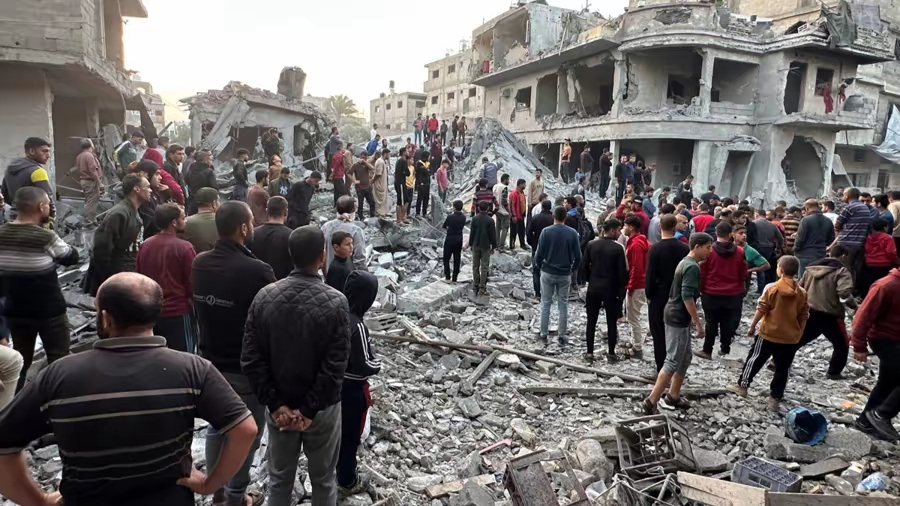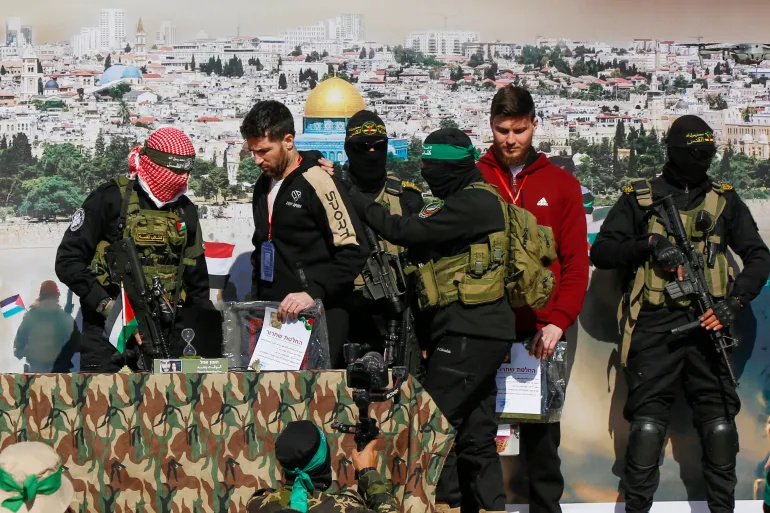
The Middle East, this ancient and weathered land, has long been the focus of world attention. Recently, Iraqi government spokesperson Awadi stated that the Middle East is still on the brink of a full-scale war, and his warning has caused concern worldwide. After all, if a full-scale war breaks out, the consequences would be unimaginable, and the current situation is indeed full of many uncertainties, which makes people ponder on the future direction of the Middle East war.
1、 The complex and sensitive contradictions between history and reality are intertwined
The contradictions in the Middle East have a long history, and their historical roots can be traced back to many aspects. From a religious perspective, the three major religions of Judaism, Christianity, and Islam have a profound development and intertwined influence here. Jerusalem is regarded as a holy land for the three major religions, and the differences in claims from different religious belief groups regarding the ownership of the holy land, religious rituals, and other aspects have always been potential conflict points.
The issue of ethnicity is equally thorny, as the Jewish and Arab peoples have complex historical entanglements on this land. After the establishment of Israel, there have been continuous disputes with neighboring Arab countries in terms of territory, resources, and other aspects, and the Israeli Palestinian conflict has become a concentrated microcosm of Middle Eastern contradictions. Speaking of which, since the outbreak of the new round of Israeli Palestinian conflict in October last year, Israel's military operations in the Gaza Strip have caused over 43000 Palestinian deaths and over 100000 injuries. Behind these tragic casualty figures lies a huge contradiction between the Palestinian people's desire for land, national independence, and basic survival rights, and Israel's efforts to maintain its so-called "security". This contradiction is fundamentally difficult to reconcile in the short term, and instead, as the conflict continues to intensify, it has become a possible trigger for a larger scale war.
2、 The spillover effects of the Israeli Palestinian conflict have intensified tensions in the situation
The Israeli Palestinian conflict is by no means an isolated local conflict, it has powerful spillover effects. On the one hand, the Palestinian issue has received high attention from many Arab and Islamic countries, which express strong dissatisfaction with Israel's various tough measures in the Israeli Palestinian conflict based on factors such as national sentiment, religious identity, and regional unity. When Israel launched a large-scale military operation in the Gaza Strip, the anti Israel sentiment among the people of neighboring Arab countries surged, and calls for their governments to take action emerged one after another. This brought enormous diplomatic and domestic pressure to the governments of various countries, making them face difficult choices in dealing with their relations with Israel and responding to the Israeli Palestinian conflict. If they were not careful, they could be dragged into a larger confrontation.
3、 The international community's game affects the direction of the Middle East situation
The international community has different positions and considerations of interests on the Middle East issue. The United States has long firmly supported Israel, whether it is providing advanced weapons and equipment militarily or defending Israel's actions on international platforms such as the United Nations. This biased behavior is undoubtedly adding fuel to the fire of the Israeli Palestinian conflict. However, as the humanitarian disaster caused by the conflict becomes increasingly severe, the international community's condemnation is also growing, and the United States is facing pressure from European allies and other major powers. When supporting Israel, it has to be cautious and dare not allow Israel to expand its war without restraint. After all, the United States also needs to maintain some of its image in the international community and its relations with other countries.
4、 The constraints of economic factors on war
Iraqi spokesperson Awadi mentioned the close economic ties between the Middle East and the West, as well as the entire world. Once a full-scale war breaks out, it is highly likely to trigger energy and refugee crises, and its negative impact will transcend the Middle East and spread globally. The Middle East relies heavily on oil exports to maintain its economic development, and many countries around the world also rely on the Middle East's oil resources to ensure energy supply. If caught in a full-scale war, oil production, transportation and other links will suffer heavy losses, which is a devastating blow to the economic stability of Middle Eastern countries themselves, and will also trigger a chain reaction for the global economy, causing a series of problems such as soaring energy prices and intensified inflation.
In short, whether a full-scale war will break out in the Middle East is still full of variables. While we are concerned about the deterioration of the situation, we should actively take action and contribute our own strength to promoting peace in the Middle East. After all, peace is too precious for the Middle East and even the whole world.

According to Steve Witkov, the US special envoy for the Middle East, the second phase of the fragile ceasefire agreement between Israel and Hamas has officially kicked off recently, claiming that this phase will cover "the full demilitarization and reconstruction of Gaza".
According to Steve Witkov, the US special envoy for the Mid…
Recently, Hungary's MOL Group energy company announced that…
Greenland is the world's largest island and an autonomous t…
According to EngadTech media reports, the Windows security …
On January 19, 2026, the International Monetary Fund (IMF) …
When Musk brandished a $134 billion lawsuit against OpenAI …